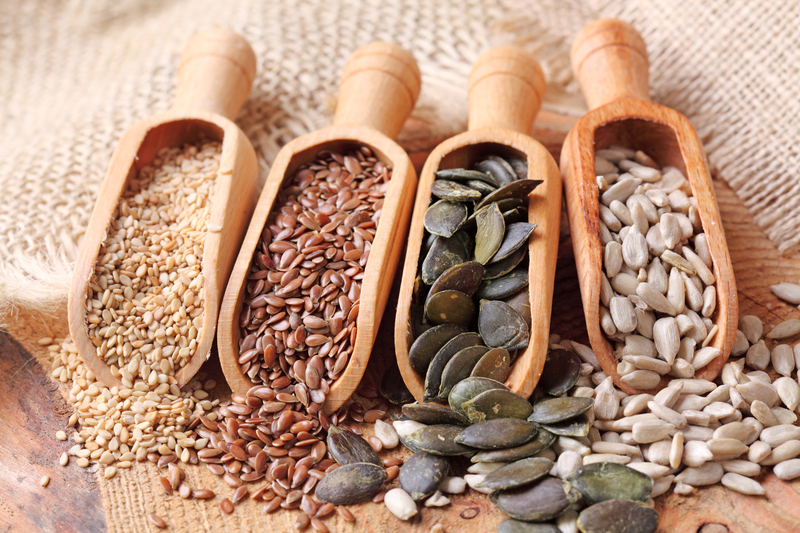Contents
Expert advice:
Best tips to manage chronic constipation in elderly loved ones
Increasingly, chronic constipation in elderly people causes health and emotional issues. It affects both men and women. Many suffer this very common problem nowadays. In fact, many aging adults deal with constipation continually, causing many problems, including digestive discomfort. Due to this issue, many patients don’t eat and exercise which often causes stress and anxiety. In turn, this may lead to being uncooperative and showing rude behavior.
With the increasing number of age, metabolism decreases which affect the digestion process. You feel anxious and uncomfortable. And that creates serious health problems. People do not want to discuss bowels. If we don’t cure this condition on time, we face severe health issues such as bowel incontinence, anal fissures, and impaction.
A common problem
The National Institute of Health finds that more than 42 million Americans have been affected by constipation. Now, this issue is turning into a major health problem for all aged individuals, especially adults.
For providing complete relief to our adults, we researched and wrote a complete article on chronic constipation. We will discuss what is constipation? What are the causes, symptoms, and diagnosis of constipation? Finally, we explore useful tips and home remedies to get rid of constipation! So without wasting time, let’s dive right into the article!
What is Constipation from a medical point of view?
Constipation occurs when bowel movements become less than 3 per week and all these movements result in dry and hard stool which is more difficult to pass. A person with constipation will often face abdominal discomfort, incomplete bowel evacuation, and a sense of fullness. Now we will discuss some symptoms.

Symptoms of Constipation:
- Facing some trouble while having a bowel movement
- Check if bowel movements are not more than 3 in a week
- Feeling that everything is not out
- Hard and small stools that are difficult to pass
- Having abdominal pain or swollen abdomen
- Vomiting
Common Causes of Constipation
Lifestyle plays an important role in the digestion of food. But in many seniors, important lifestyle factors are just norms! For example, some individuals suffer from dehydration without knowing about it. Due to their weak thirst mechanism, they don’t even know that they are suffering from dehydration.
Moreover, seniors limit their physical activities due to disabilities and other diseases as well. They are unable to move and spend their frequent time on the bed that causes serious health issues. A major cause of constipation is lack of movement and exercise that is very usual in elderly.
Teeth loss also makes it difficult for elders to eat their regular meals. Due to the loss of teeth, many old individuals prefer soft and processed meals that do not contain enough fiber. Sometimes in hunger, they have to swallow hard food that they cannot chew, which results in extreme constipation.
We have seen that many adults of 65 ages take medicines for different chronic conditions. Supplements and medications like antacids, diuretics, anticonvulsants, and antidepressants may cause a serious issue while digestion.
Types of constipation in elderly
Normal transit constipation
It is a very common type of constipation. In this type of constipation, the patient finds difficulty while evacuating bowels even after passing the stool at a normal rate through the colon. It is found along with constipation and irritable bowel syndrome. The major difference between irritable bowel syndrome and chronic constipation is the pain in the abdomen.
Slow-transit constipation
This type of constipation is common in women. You will observe limited urgency, slow colonic movements, and infrequent bowel movements.
Pelvic floor dysfunction
There exists an issue in the pelvic floor’s muscles that are around the anus. During defection, these patients can’t coordinate these muscles as they have poor ability to coordinate them.

Diagnosis of constipation in Elderly
You can diagnose constipation through complete examination and history. Constipation through drugs, constipation due to inactivity for a longer time, and changes in regular diet are the causes that can be evaluated through history.
However, blood in stools, high fever, sudden weight loss, vomiting, colon cancer in adults, and loss of appetite should be diagnosed carefully through complete examination.
Note: intermittent diarrhea may actually indicate constipation. It’s a surprising truth. If you find that diarrhea happens every few days and no bowel movement between, consult your doctor. People often confuse this symptom.
To check any other constipation causes, a general test should be taken. Many other causes affect our other body systems.
These causes of constipation in elderly people include:
- Heart diseases such as heart failure
- Hypokalemia (low blood potassium)
- hypomagnesemia (increased blood magnesium)
- hyperparathyroidism (overactive parathyroid glands)
- Diabetes mellitus
- hypercalcemia (increased blood calcium)
- Hypothyroidism (underactive thyroid) etc.
Constipation can also be caused by nerve and muscle disorders such as autonomic neuropathy, spinal cord lesion (injury or tumors), depression, and systemic sclerosis.
Diseases caused by the gastrointestinal system also cause chronic constipation in elderly. It includes irritable bowel diseases, volvulus, anal fissure, strictures, etc.
6 effective home remedies for getting rid of chronic constipation in elderly
After a detailed discussion about the causes of constipation, now it’s time to provide simple home remedies for relief. These tips are efficient against constipation, but if they don’t work, then consult your doctor as soon as possible.
Avoid constipating foods:
Some foods are naturally high in fiber and help the body avoid constipation. Plan meals with these in mind.
Stay away from such foods that encourage constipation. These foods are:
- Unripe bananas
- Chocolates
- Caffeinated Tea, coffee. However, decaf is fine.
- Refined grains
- White Rice
- Cheese
Eat and drink these foods regularly:
You should make such a meal plan that would not cause constipation. Here are some listed items, you should use daily!
- Vegetables
- Dry and fresh fruits
- Whole grains
- Food containing high fiber
- Water for stimulating the bowel and softening the stool
- Nuts and beans
- Watery foods including fruits and vegetables
Important Note: If your doctor observed that your muscle or nerve is causing constipation, then they may suggest older individuals not to eat high fiber. Doctors may recommend using medication to soften the stool by adding water to the colon. Always follow advice from your physician.

Exercise daily as aggressively as possible
Regular Exercise and daily physical activities are very useful for health. During exercise, your body and muscles start a movement that results in blood flow throughout the body. Physical activities sharpen the mind and digestive functions that help you to stay active and healthy during the entire day!
Even a bedridden person can perform simple exercises. If needed, help your loved one move about as much as possible.
Establish a regular bathroom time routine
It is a great idea to establish and implement a regular bathroom time every day. It will help you to improve your immunity system and relieve constipation. If you feel the urge any time of the day, then go to the bathroom immediately!
Use soluble fiber supplements daily
Metamucil or Benefiber is soluble fiber supplements. Add one of them to the beverages. These supplements are flavorless in taste that can be dissolved easily in any beverage.
As we mentioned earlier, don’t use these fiber-rich supplements if you are facing constipation due to muscle or nerve problems. In this case, rely on medications that are used for adding water to the colon to soften the stool.

Seeds like flax seed contain natural fiber
Use laxatives properly
Laxatives are substances used for a bowel movement. Usage of laxatives relieves constipation. You can use it for stool softening. Before taking laxatives, we suggest consulting your doctor for getting an appropriate dose. During these laxatives taking process, continue to monitor your patient.
Some people think that laxatives can be dangerous and risky. When used correctly and with the doctor’s advice, they show many benefits. However, use caution to not overuse. This often leads to a dependency and other issues. Discuss any concerns with the elderly person’s doctor.
In this particular section, we are going to discuss the four types of OTC laxatives that older adults and clinicians have been using for decades. If you would use it correctly, then it might not cause any problem. We will cover the basics of each type and their work in detail.
Three types of laxative that work well
Oral over-the-counter (OTC) laxatives are categorized into four parts. Three of them do the job very efficiently, but the fourth one does not. Each type has its acting mechanism.
Now we will discuss the three OTC laxative types that work well.
Osmotic agents:
These agents consist of lactulose, polyethylene glycol (Miralax as brand name), sorbitol, salts of magnesia, and phosphate. This mechanism is used in magnesium-based laxatives.
To make stool softer and easier to pass through the bowel, extra water is added to the stool
- According to recent studies, osmotic agents are much efficient for 6 to 24 months
- Researchers found that most people tolerated polyethylene glycol more easily than other agents.
- You should have to be careful while using magnesium-based agents in older individuals. It can build up the level of magnesium that decreases the kidney functions. It is commonly found in older adults
Stimulant agents:
These agents consist of Bisacodyl (Dulcolax as brand name) and Senna (Senakot as brand name).
- The colon can be stimulated to squeeze and things move along very quickly.
- Studies proved that these agents are very effective. They are also known as rescue agents. If there is no bowel movement for two days, they can be used to encourage a bowel movement.
- Bisacodyl can also be used as a rescue agent and it is available in suppository form
Bulking agents:
Bulking agents are soluble supplements of fibers like methylcellulose (Citrucel as brand name) and psyllium (Metamucil as brand name).
- These agents make the stool bigger and do not get it dry and hard. A bulky stool can be easy to move along the colon
- Bulking agents are effective to remove constipation, but it requires a huge amount of water.
- Bulky agents can’t work against constipation from drugs or slow transit. So, you would not get any benefit through a bulking agent in this case
After discussing the effective types of OTC laxatives, the time is now to discuss the least effective type of laxatives.
One type of laxative available over-the-counter contains Docusate sodium. Although it shows mixed reviews of its effectiveness. Therefore, we suggest you discuss this with your doctor before using.
About prescription laxatives
Many newer prescription laxatives are available in the market that may work effectively against the rest of constipated issues. These laxatives consist of Linaclotide (Linzess as brand name) and Lubiprostone (Amitiza as Brand name)
Research continues on these medications and their effectiveness. In fact, some meta-analysis and head to head comparing analysis found that newer agents are not much effective as compared to traditional approaches. New approaches based agents are expensive and have fewer safety records. Doctors may prescribe these after careful evaluation that includes pelvic floor disorders evaluation.
Management of constipation in Elderly
Managing chronic constipation in elderly loved ones aims to make sure that stool passage is soft without straining and improving the lifestyle with minimum side effects.
You should change your lifestyle by changing your daily habits. Increase your physical activities and eat a balanced meal full of fluids and fibers. Also, reduce the usage of caffeinated tea, coffee, and alcohol as soon as possible. These things often encourage constipation. Reduce or avoid them. Drink an extra glass of water in place of coffee and tea.
We suggest patients use fiber in foods. Apart from this, patients should also take bulk/Fibre supplements such as Psyllium, polycarbophil, or bran.
When to see the doctors?
Don’t hesitate to discuss constipation with your doctor. Tell them your problems in detail to get a proper solution. Indeed, if you have gone through all exercises, dietary changes but not getting relief, then it is time to consult your doctor!
Conclusion:
Chronic constipation in elderly is a very usual problem in the USA and many more countires. This article is for the old adults that are worried about their digestive issues. In this article, we have mentioned all the symptoms, causes, diagnosis, and home remedies in detail to get things more clear!
Many old adults are unable to move because of their age or any other issue and they lay on the bed all the time. However, this often results in chronic constipation. Experts advise patients to help manage constipation problems using some physical exercise daily. However, we have mentioned all the ways to get relief.
We hope this article is increasing your knowledge and helping you to fight against constipation. If you have any queries regarding this serious health issue, then please use the comment section! Thanks for your participation!
Related Reading
Tips for caring for elderly at home





